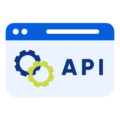

Marketing Automation
Automation Is Good, So Long As You Have A Customer Centric Approach
WHY MARKETING AUTOMATION?
Marketers are increasingly using marketing automation to support leads to sales and CRM marketing activities, and for many good reasons. Improved marketing efficiency, more valuable insights and better quantifiable results. XGATE's multichannel marketing automation combines simplicity and speed to help you create, automate and launch campaigns quickly. This means you generate more revenue with less effort.
Benefits of Marketing Automation
- Better leads management and nurturing
- Targeted at the right customers
- Personalised messages for the individuals
- Timely message with the right channel
- Increased efficiency throughout lifecycle journey
- Improved customer relationship management
FOUR KEY ELEMENTS CRITICAL TO YOUR MARKETING AUTOMATION STRATEGY
1. Multichannel Marketing
Central to the success of delivering marketing automation campaign is the ability to deliver the right message, using the right channel, to the right target audience. XGATE DMS is a multichannel marketing platform. This means at different stages of the customer lifecycle, your messages are delivered across various customer touch points using a combination of email, mobile (SMS, iSMS, MMS) web and social media.
2. Campaign Designer
DMS platform is built with easy to use, drag and drop feature when you design your marketing campaigns or CRM programs. Campaign designer allows you to swiftly create, target, launch, track and manage multichannel campaigns with ease. When you combine simplicity and speed to your marketing, it means you generate more revenue with less effort.
3. Data Integration
The primary purpose of data integration in our marketing automation is to combine online/offline transactional data, profile data, campaign data etc. to create a unified view of the data or Single Customer View. Whether data connectors are via sFTP or APIs, our technical experts will work with your IT team to design the most appropriate solution fully aligned to your systems architecture.
4. Filtering
XGATE has developed dynamic filters capable of extracting smart segments based on different parameters - purchase history, messaging click behaviour, customer profile or multiple combination of those parameters. Ultimately, the filters allow marketers to be creative and yet scientific (based on data) when it comes to execution.

Marketing automation software is a powerful tool used by businesses to automate repetitive marketing tasks and streamline processes across multiple channels, such as email, social media, websites, and more. It allows marketers to effectively nurture leads, engage with customers, and optimize campaigns through the use of technology and data-driven insights.
Key features of marketing automation companies typically include:
Email Marketing Automation: This feature enables businesses to create personalised email campaigns, send automated follow-up emails based on user actions, and segment email lists for targeted messaging.
Lead Management: Marketing automation companies helps businesses track and manage leads throughout the sales funnel, from initial contact to conversion. It includes features such as lead scoring, lead nurturing workflows, and automated lead assignment to sales teams.
Campaign Management: Businesses can plan, execute, and monitor multi-channel marketing campaigns seamlessly using marketing automation software. This includes scheduling social media posts, managing ad campaigns, and tracking campaign performance metrics.
Customer Segmentation: Marketers can segment their audience based on demographics, behaviour, preferences, and other criteria to deliver highly targeted and relevant messaging to different customer segments.
Analytics and Reporting: Marketing automation software provides valuable insights into campaign performance, user engagement, and ROI. Marketers can track key metrics, analyse data trends, and generate reports to measure the effectiveness of their marketing efforts.
Workflow Automation: Businesses can create automated workflows to streamline repetitive tasks and processes, such as lead nurturing, content distribution, and customer onboarding. This helps save time, improve efficiency, and ensure consistency in marketing activities.
How does marketing automation software work?
Marketing automation software takes care of most of the tasks and workflows involved in digital marketing campaigns and customer lifecycle programs. The software works using six common processes (or steps):
- Collect data about potential customers through website visits, app usage, email clicks, and other digital marketing interactions.
- Based on the data collected, relevant and useful content is created.
- Identify, target, and segment prospective customers.
- Design campaigns using prospect segments to deliver personalised experiences across various digital marketing channels, including email, SMS, WhatsApp, WeChat and more.
- Customer actions and predetermined schedules trigger cross-channel workflows to do two things—lead customers down the sales funnel and/or nurture them until they become marketing-qualified leads.
- Analyse and track results. Find out what’s not working and adjust as needed to achieve greater marketing ROI.



